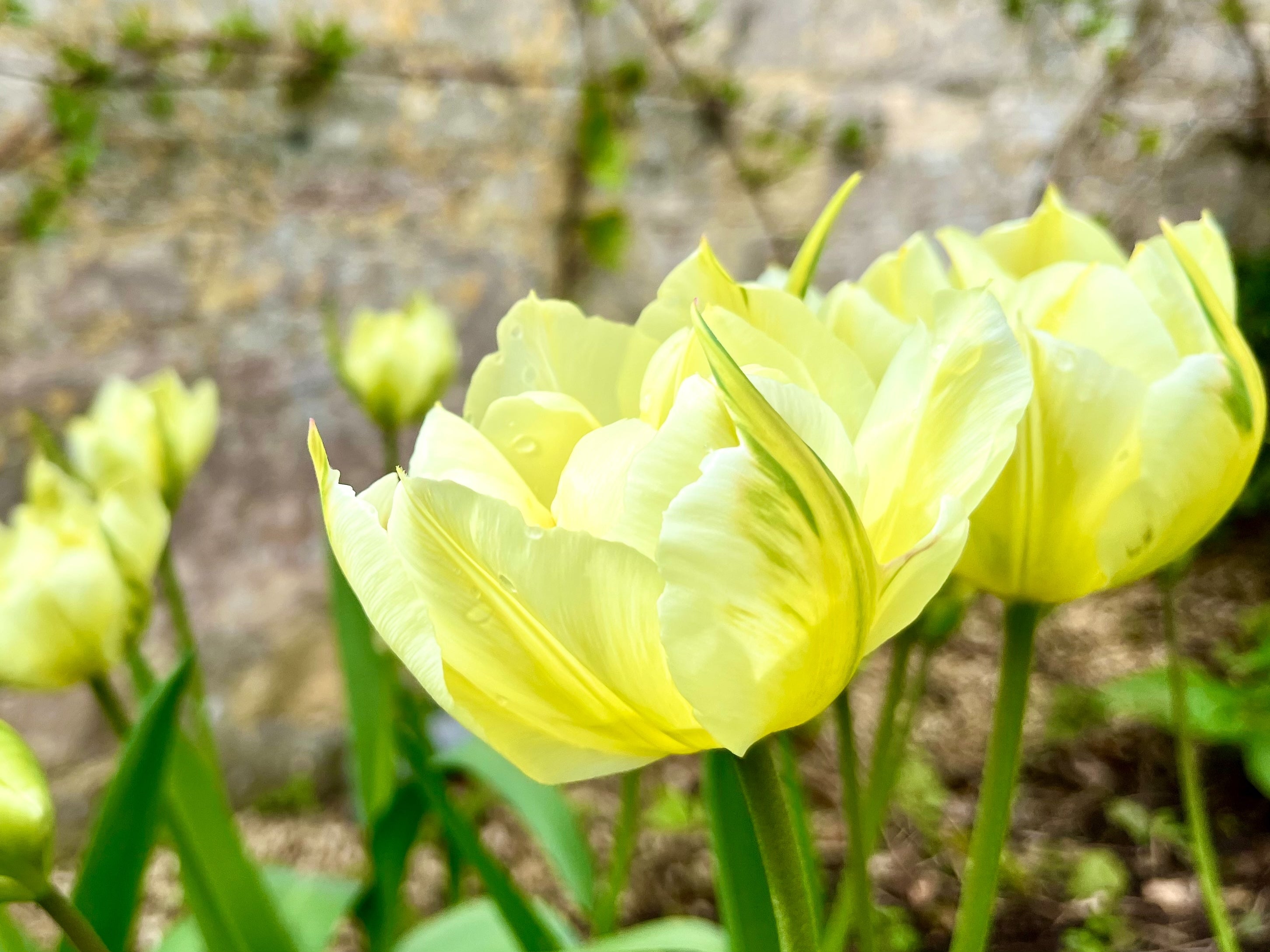Repeat performance

We decided not to plant any tulips last autumn, waiting to see if any from previous years would put in a repeat performance. The thing about tulips is that some behave impeccably and return year after year. Others flower once and then dwindle in vigour before coming back as a whorl of fine leaves with no hint of a flower. On inspection the bulbs will be seen to have segmented, resembling garlic cloves rather than nice plump oval bulbs that we’re used to seeing when we buy them from our supplier.
Online searches will find recommendations for reliable repeat performers, but in our experience so much can depend on soil, climate, and the location within the garden. We have found ‘Verona’ (pictured) to be particularly good, returning now for several years. In the past we’ve also found some of the large ‘Carnival’ types are good value putting up with shady spots that can be quite damp in the winter.
Interestingly for a plant that comes from the well drained steppes of Kazakhstan they often thrive in heavy clay soil. One fail safe method of guaranteeing an annual return is to plant your bulbs deep - surprisingly deep, ignoring anything the books say. The depth of a spade is ideal and there’s no need to add grit, compost, or feed. We’ve used this method in the past on cut flower beds. They come back every year and, because they’re planted so deep, they can be overplanted with annuals to give a further crop of blooms later on in the summer.











